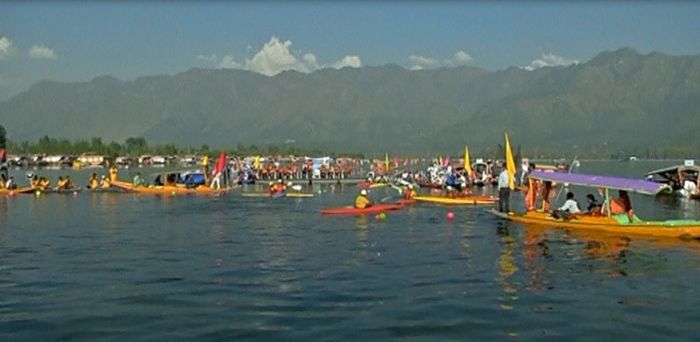By: Aubaid Ahmad Akhoon
Water is essential for survival, sustaining life on Earth and maintaining the balance of ecosystems. It is a fundamental need, without which no living being can survive. Yet, despite its importance, humanity’s negligence and unsustainable practices have led to a global water crisis. Impure water is one of the leading causes of epidemic diseases, spreading illnesses like cholera, typhoid, and dysentery, and claiming millions of lives annually. This alarming reality demands urgent action, responsibility, and a collective effort to protect and preserve this precious resource.
Our beloved Prophet Muhammad (PBUH) emphasized the significance of moderation and balance in all aspects of life, including how we use water. He instructed that our stomachs should be divided into three parts: one-third for food, one-third for water, and one-third for air. This Hadith reflects not only the importance of water in our lives but also the necessity of using it wisely and maintaining a balanced lifestyle.
The Growing Threat of Water Scarcity
The water crisis is not limited to drought-stricken regions or developing countries; it is a universal issue. The United Nations reports that more than 2 billion people lack access to clean drinking water, while water scarcity affects half the global population. Compounding this issue is the fact that water pollution, poor infrastructure, and mismanagement have left many freshwater sources unfit for consumption.
Even regions rich in water resources, such as Kashmir, are witnessing a steady decline in water quality and availability. The once-pristine waters of Dal Lake, Wular Lake, and the Jhelum River have become heavily polluted due to human negligence, encroachments, and environmental degradation. Stories from the past describe the Jhelum River as so clean that its water could be consumed directly. Today, this seems like a distant memory as untreated waste, fertilizers, and chemicals have contaminated this lifeline of Kashmir.
The Link Between Impure Water and Epidemic Diseases
Impure water is a silent but deadly force. According to the World Health Organization, contaminated water is a leading cause of epidemic diseases worldwide. Infections like cholera, dysentery, hepatitis A, and typhoid spread rapidly through unsafe drinking water, particularly in regions with inadequate sanitation and hygiene. Children and vulnerable populations are disproportionately affected, with waterborne diseases claiming hundreds of thousands of young lives every year.
In Kashmir, the rise of waterborne illnesses highlights the urgent need for improved water management. Rural areas with limited access to clean water are particularly at risk, especially during monsoon seasons when floods exacerbate pollution levels.
The Contrast: Agricultural Water vs. Drinking Water
While both agricultural and drinking water are vital, their purposes and management differ significantly. Agriculture, which consumes around 70% of the world’s freshwater resources, uses water for irrigation, livestock, and crop production. Though essential, agricultural water usage often involves excessive withdrawals and contributes to water wastage and pollution through fertilizers and pesticides.
Drinking water, on the other hand, requires strict purification to ensure it is safe for human consumption. Its quality directly impacts public health, making it crucial to prioritize clean water over excessive agricultural use. Balancing these needs is critical to addressing the global water crisis.
Lessons from Islamic Teachings
Islam places a strong emphasis on conserving natural resources and maintaining cleanliness. The Prophet Muhammad (PBUH) warned against the wastage of water, even when performing ablution from a flowing river. This timeless guidance underscores the value of water and the responsibility of every individual to use it judiciously.
Furthermore, Islam encourages the protection of communal resources, such as rivers and lakes, and considers polluting them a sin. These principles serve as a foundation for building a sustainable and ethical approach to water management.
A Call for Collective Action
The water crisis is a challenge that requires collective responsibility. Governments, organizations, and individuals must work together to conserve water, protect natural resources, and promote sustainable practices. Simple measures like fixing leaks, reducing water waste, and adopting rainwater harvesting can make a significant difference.
In Kashmir, initiatives like classifying wetlands under the Environment Protection Act and Wetland Management Rules are steps in the right direction. However, these policies need robust implementation and community involvement to be truly effective.
Tailpiece: Hope for the Future
Water is more than a resource—it is a divine blessing. Its preservation is not just a matter of necessity but also a moral and spiritual obligation. As stewards of this planet, we must strive to protect water resources for ourselves and future generations.
Kashmir, with its breathtaking landscapes and water bodies, stands as both a testament to nature’s beauty and a reminder of its fragility. Let us heed the warnings of environmental degradation and take immediate action to restore and preserve our precious water resources.
As the poet wisely said:”The house caught fire with its own lamp.”Let us not be the architects of our own destruction. Instead, let us unite to safeguard water—the elixir of life—and ensure a healthier, sustainable future for all.
The columnist, Ubaid Ahmed Akhoon, is a motivational speaker and Associate Editor of Education Quill. He can be reached at akhoon.aubaid@gmail.com.



